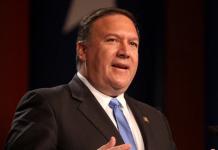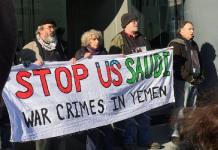Let’s start by addressing an issue which Manning has made abundantly apparent and is worthy of inspection, “transparency”. What do we know and don’t know about the wars in Iraq and Afghanistan?
By Blaise Scemama
Bradley Manning is a 25-year old military intelligence officer currently on trial for leaking classified documents including a video of an American apache helicopter gunning down 12 Iraqi citizens in cold blood, including two reporters. His actions, which he says were guided by his own moral conscience, were designed to spur a debate about the true cost of war and how it is conducted behind the scenes.
Manning was arrested in 2010 and shortly after moved to a maximum security solitary confinement cell where he spent the next ten months of his life, 23 hours a day, in complete darkness and solitude. He is now facing up to 20 years in prison, possibly the rest of his life, for essentially revealing information that we, the public, really ought to have known.
Manning has made a naked guilt plea to 10 of 22 charges against him, each of the 10 charges have a maximum sentence of two years which may mean he will have to spend 20 years in prison. A naked plea is essentially one in which the defendant is guaranteed nothing, no deals or bargains with the prosecution to reduce his sentence or drop any other charges. Manning seems to be taking responsibility for his actions and blindly hoping that the truth alone will set him free. When asked why he leaked classified material to the infamous whistle blowing website Wikileaks, Manning said, «I believed if the public, particularly the American public, could see this it could spark a debate on the military and our foreign policy in general as it applied to Iraq and Afghanistan,»
All this considered, it is high time we heed this young Nobel Peace-Prize nominee’s wishes and have a discussion about «War».
Let’s start by addressing an issue which Manning has made abundantly apparent and is worthy of inspection, “transparency”. What do we know and don’t know about the wars in Iraq and Afghanistan? At this point, based on the information leaked by Manning, it is safe to say that the government is not telling us everything. Do we really know how many people were killed or how much money was spent over the course of the two wars? Is it even possible to get these figures from an objective third party? So let’s look at some of the figures that are available and see if we can make some sense of it all, and maybe put the subject of “war” into perspective.
The first question is, whether it be American or Iraqi, how many lives were lost in Iraq? This question is shockingly difficult to answer. There are so many figures flying around out there on the web, that no one is remotely sure of any “official” amount. A simple Google search of, “the official number of casualties in the Iraq war”, results in thousands of different websites, giving numbers that range from 120,000 to 1,455,000. This huge discrepancy implies that either faulty counting methods are being used or the truth is being hidden. The only number that seems to be completely consistent, is the number of American casualties, 4,422.
The Lancet Journal, which is the world’s leading peer reviewed medical journal, and maybe the most reliable and respected source one can find, claims there were 654,965 deaths as of 2006 due to violence in Iraq. If this number was even remotely accurate in 2006, one could realistically assume that the final number of Iraqi deaths may have reached up to 1 million. These figures are not official but the fact that we are forced to make assumptions at all, reveals a lack of transparency on a very fundamental level.
Let me remind you, that this discussion is solely about transparency not morality at this point. Whether it is wrong to go into a country and kill somewhere between 120,000 to 1,000,000 people based on a suspicion that their government possesses weapons of mass destruction, is not the question. The point Bradley Manning has made very concretely, is that there are important facts about the war in Iraq and Afghanistan and war in general that are being deliberately hidden from the public. Although some information should be deemed classified for strategic reasons while the war is still progress, shouldn’t the public be retroactively given access to basic documents and figures so we can decide whether or not tax dollars have been spent correctly? This brings us to the next cost of war, the financial cost.
The combined financial cost of both the war in Iraq and Afghanistan is thought to have set tax payers back somewhere between $1.4 to 3.7 trillion. There seems to be more people in agreement of these figures than that of the casualties. A hand full of credible sources believe the number to be close to $1.4 trillion, and another group estimates that it is close to $3.7 trillion. Brown University for example, estimated government spending of both the war in Iraq and Afghanistan to be over $4 trillion. The question here is, why don’t we know for sure? If local business owners down the block are expected by the IRS to keep receipts of all their transactions, shouldn’t the U.S government? Again, whether it is morally wrong to spend this much of tax-payer’s money on two wars that have helped put our country in recession, is not the focus of this conversation.
Bradley Manning is not on trial for making any anti-war statements; he is on trial for giving the United States public, information that is being denied to us. We can see for ourselves that basic facts, like the number of casualties and the financial costs of the war are already difficult to find, but the information which Manning has provided to us proves there is much more the government is not telling the American people. If he is found guilty of all 22 charges, including aiding the enemy, Manning will go to prison for the rest of his natural life which would send a strong message to all whistle blowers. “Don’t let the public know how we conduct business over seas or we’ll throw you away for life.”








